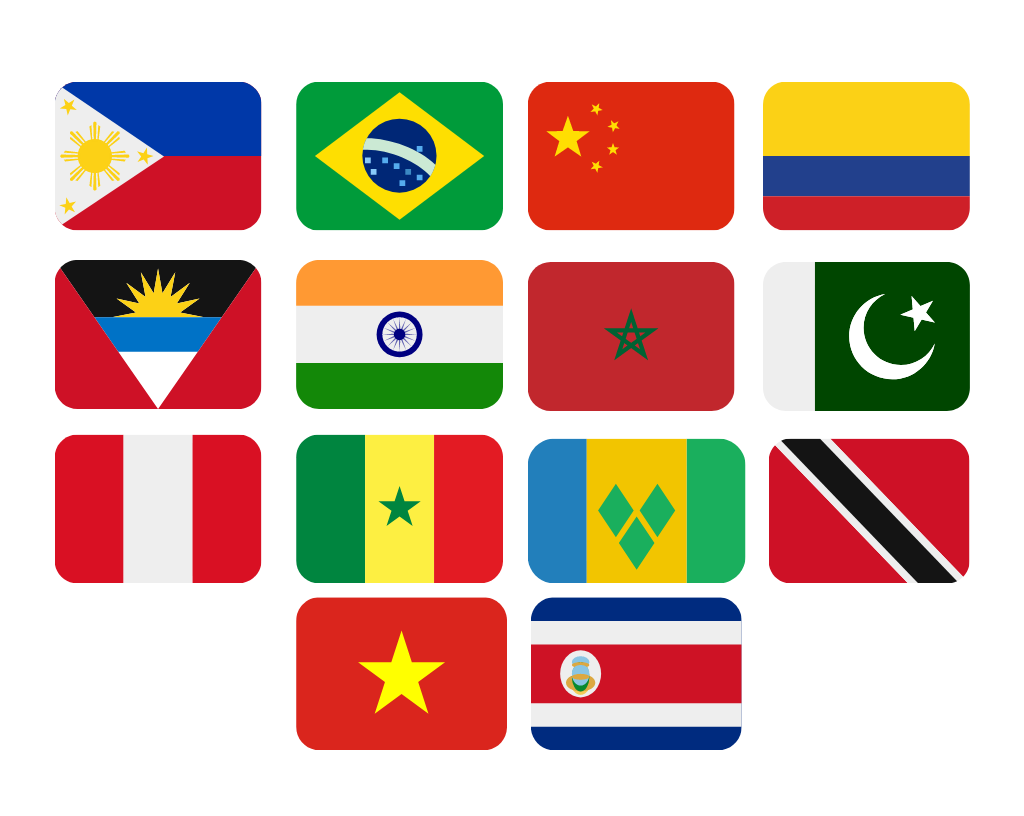Why go to Canada for Study?
What makes Canada such a popular destination for students from all over the world?
Here are some reasons:
- Canadian educational qualifications are recognized and respected worldwide.
- Studying in Canada is affordable (far less expensive than studying in the USA, for example).
- Canada offers many pathways to Permanent Residence upon completion of your study. Canada’s Post-Graduation Work Permit Program (PGWPP) is a huge attraction for international students.
- Canada is one of the most multi-cultural societies in the world.
- Canada is safe! Without a doubt, it is one of the most secure and safest countries in the world.
- Students get an opportunity to mingle with fellow students from all over the world.
- Canadian institutions offer a plethora of co-op and research opportunities in conjunction with Canadian companies / business sector.
Stop dreaming, start imagining – your future life – in Canada!

Questions?
Complete the Preliminary Evaluation Form – Students for a free assessment of your qualifications to study in Canada.
We will get back to you within 1-2 business days.
What is a Study Permit?
Study permit is a document issued by the Government of Canada to foreign nationals to study at Designated Learning Institutions (DLIs) in Canada. Most foreign nationals need a study permit to study in Canada.
Note that your study permit is not a visa. You may also require a visitor visa or an eTA (electronic Travel Authorization) which is typically issued along with the study permit.
Student Direct Stream
Foreign nationals legally resident in certain countries may be able to get Study Permit faster through the Student Direct Stream.
Most Student Direct Stream (SDS) applications are processed within 20 calendar days however some applications may take longer. To be eligible for faster processing, you must give your biometrics as soon as possible and meet all eligibility requirements.
Eligibility requirements
To be eligible for faster processing through the Student Direct Stream, you must:
- Be a legal resident living in one of these countries:
- Antigua & Barbuda
- Brazil
- China
- Colombia
- Costa Rica
- India
- Morocco
- Pakistan
- Peru
- Philippines
- Senegal
- Saint Vincent and the Grenadines
- Trinidad & Tobago
- Vietnam

- Have an acceptance letter from a post-secondary Designated Learning Institution (DLI).
- Be resident outside of Canada when you apply.
- Provide proof of payment of your tuition for your first year of study.
- Have a Guaranteed Investment Certificate (GIC) of CAD $10,000.
- Have a Certificat d’acceptation du Québec (CAQ) from the Ministère de l’Immigration, de la Francisation et de l’Intégration (applicable only if you are planning to study in Quebec).
- Get a medical exam before you apply (if you need one).
- Get a police clearance certificate before you apply (if you need one).
- Have your most recent secondary or post-secondary school transcripts.
- Have a language test result that shows either an IELTS (academic or general) score of minimum 6.0 in each skill (Reading, Writing, Speaking and Listening), or a TEF score equal to a Canadian Language Benchmark (CLB) score of minimum 7 in each skill (Reading, Writing, Speaking and Listening).
Additional documents may be required depending on where you are applying from.
Who isn’t eligible for the Student Direct Stream
If you live anywhere other than any of the countries listed above, (even if you are a citizen of one of these countries), or if you don’t meet the eligibility for faster processing, you must apply through the regular study permit application process.
Jobs for International Students in Canada
On-campus Jobs
As an international student, you can work on campus without a work permit during your studies if:
- You have a valid study permit.
- You are a full-time student at a post-secondary public school (university or college, or CEGEP in Quebec), or at a private college-level school in Quebec that operates under the same rules as public schools and is minimum 50% funded by government grants, or at a Canadian private school that can legally award degrees under provincial law.
- You have a SIN (Social Insurance Number).


Off-Campus Jobs
As an international student, you can work off-campus without a work permit during your studies if:
- You have a valid study permit.
- You are a full-time student in a Designated Learning Institution (a post-secondary program, or in Quebec at a vocational program at the secondary level as well).
- Your study program is academic, vocational or professional, and it is minimum 6 months long, and leads to a degree, diploma or certificate.
- You are working up to 20 hours (maximum) per week during regular academic sessions, and full time during scheduled breaks (e.g., winter / summer holidays or spring break).
Certain study programs include work requirements such as co-op or internships. In such cases, a work permit is required in order for the foreign student to be able to complete the work.
